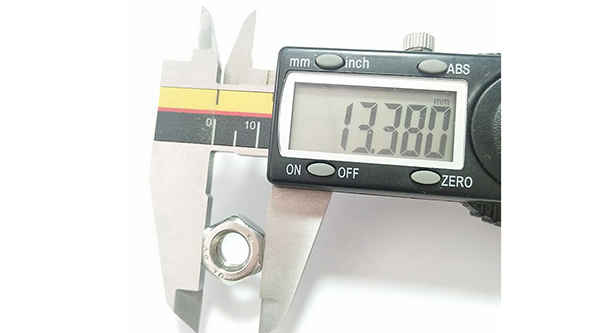What is the tolerance range of precision screws?
What is the tolerance range of precision screws?
Service Hotline
+86760-8787 8587We have more than ten years of production experience in the screw industry. The main products are: machine screws, round head screws and bolts, 12.9 alloy steel screws, metric screws, small side pull nuts, cross pan head combination screws, professional supply of hexagonal cap nuts, plastic Bolts, column knurled stud nut columns, JIB1170 hexagon slotted nuts, small hexagon head bolts, nylon plastic bolts, hemispherical head caps, round decorative screws, connecting buckle nut buckles and other fasteners, due to product materials and specifications. Different, the price is also different, if you need, please contact us.


The retaining ring is divided into two types: shaft use and hole use. Its structural characteristics: The shaft retaining ring is a kind of retaining ring installed on the shaft groove, which is used for positioning and fixing of shaft end parts, and can withstand severe vibration and shock loads, but It is necessary to take anti-loosening measures and installation positioning; the hole is installed in the circular hole with an elastic retaining ring, which is used for the axial movement of the fixed parts. The outer diameter of this retaining ring is slightly larger than the diameter of the assembly circular hole.

Existing bolt pairs usually include bolts, nuts and washers, and their specific structures and usage methods are traditionally known and common in life. They will not be described in detail here. You can find relevant bolt pairs by searching for bolt pairs on the Internet. Information picture, the structure of the ordinary bolt pair has basically no structural improvement since it was used as a fastener. The production requirements of ordinary bolt pairs are the basic material, structural strength, and accuracy requirements, while the tightening and anti-loosening requirements The requirements of the effect are basically to achieve the problem of tightening and anti-loosening by using elastic washers, anti-loosening washers or using double nuts.


Reference standard GB 90 Fastener acceptance inspection, marking and packaging GB 196 Basic dimensions of ordinary threads (1~600mm in diameter) GB 197 Tolerance and fit of ordinary threads (1~355mm in diameter) GB 230 Test method for Rockwell hardness of metals GB 699 High-quality carbon Plain structural steel technical conditions GB 1237 Marking method of fasteners GB 5267 Electroplating layer of threaded fasteners GB6394 Determination of average grain size of metals

The hexagonal nut is used in conjunction with screws, bolts and screws to connect and fasten parts. Among them, the Type 1 six-purpose nut is the most widely used. The C-level nut is used for machines, equipment or structures with rough surface and low precision requirements; A-level and B-level nuts are used for relatively smooth surfaces and high precision requirements. machine, equipment or structure. The thickness M of the type 2 hexagon nut is thicker, and it is mostly used in occasions where assembly and disassembly are often required. The thickness M of the hexagonal thin nut is relatively thin, and it is mostly used in situations where the surface space of the connected parts is limited.

The above content is uploaded by Yueluo or the Internet. If there is any copyright issue, please contact [email protected].

What is the tolerance range of precision screws?

How to choose the right stainless steel screw manufacturer?

Why is there an R angle under the head of the hexagon head s...

We have more than ten years of experience in the production ...

We have more than ten years of production experience in the ...

We have more than ten years of experience in the production ...

We have more than ten years of experience in screw industry ...